Maytag MicroClean HE dishwasher error codes
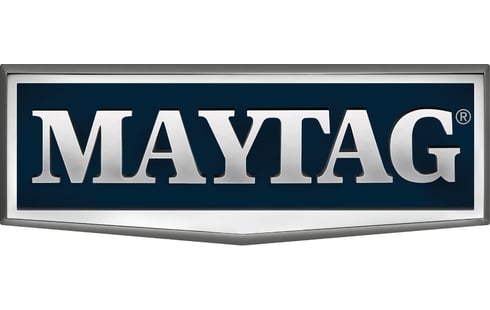
These error code explanations can help you diagnose a problem with your Maytag MicroClean HE dishwasher. For repair how-to help, visit the PartsDirect repair help section, which includes repair help for dishwashers, other major appliances, lawn and garden equipment, garage door openers, vacuum cleaners and more. Search for your model number to find a complete list of replacement parts for your dishwasher.
Digital display models show the error codes on the control panel.
Models without a digital display signal error codes by flashing the Clean light in a pattern unique to the error. The light first flashes the first number of the error code, pauses for 2 seconds and then flashes the second number of the code. For example, 6 flashes followed by 1 flash (6-1) means "Inlet Water" function, "The electronic control doesn't detect water entering the dishwasher tub" problem. After a 5-second pause, the light repeats the pattern.
The control console will not work when an error code is flashing.
Stuck relay on the electronic control board
Shut off power to the dishwasher for 5 minutes. If the code resumes when you restore power, check the wiring connected to the control board for damage and repair any broken wires. Measure the resistance through all components connected to the control board using the tech sheet as a guide. You can find the tech sheet behind the bottom front toe panel of the dishwasher. Replace any defective components. If the wiring and components are okay, replace the electronic control board.
Defective electronic control board
Shut off power to the dishwasher for 5 minutes. If the code resumes when you restore power, replace the electronic control board.
Stuck button on the user interface control
Check all buttons on the user interface control for a response. If one or more of the buttons don't work, unplug the dishwasher to disconnect electrical power and disconnect the user interface control wire harness. Reassemble the door with the user interface wire harness disconnected, but don't close the door. Plug in the dishwasher and wait at least 7 seconds for the electronic control board to power up completely. Then close the door. If the electronic control no longer detects stuck buttons with the user interface wire harness unplugged, it will start the drain pump. If the drain pump runs, replace the user interface control. If the drain pump doesn't run, then replace the electronic control board because it still detects stuck buttons with the user interface control unplugged.
Thermistor/OWI sensor failure (The thermistor is the water temperature sensor, the OWI sensor is the Optical Water Indicator that detects the amount of debris in the water.)
Unplug the dishwasher to disconnect electrical power and then check the wiring between the electronic control board and the thermistor/OWI sensor. Repair or replace the wire harness if broken. If you find the wiring undamaged, replace the thermistor/OWI sensor.
Shorted thermistor/OWI sensor
Unplug the dishwasher to disconnect electrical power and then check the wiring between the electronic control board and the thermistor/OWI sensor. Repair or replace the wire harness if broken. If you find the wiring undamaged, replace the thermistor/OWI sensor.
OWI failed to calibrate or the drain hose check valve failed, allowing dirty water to backflow into the dishwasher
Disconnect the dishwasher drain hose connection from the air gap or the garbage disposal if you have no air gap. Pour water through the drain hose to see if water backs up into the dishwasher tub. If so, replace the portion of the drain hose that connects to the drain pump because the check valve in that hose failed. If water doesn't back up into the dishwasher through the drain hose, reconnect the hose and run the Service Diagnostics Test according to the instructions in the tech sheet. You should see low soil level indicated during the OWI test in the diagnostic mode. If you see high soil level during the OWI test, unplug the dishwasher and clean the OWI sensor. Reassemble the dishwasher and plug the dishwasher back in to restore electrical power. Run the diagnostic test cycle so the electronic control board will calibrate the OWI sensor on the next cycle. Run a normal wash cycle. If you still see the error code, replace the thermistor/OWI sensor.
Communication error between the electronic control board and the circulation pump motor
Unplug the dishwasher to disconnect electrical power. Check the circulation pump wire harness and reconnect any loose wires or replace the wire harness if damaged. If the wiring connections are okay, replace the circulation pump and motor assembly. If the problem continues, replace the electronic control board.
Door switch failure
This code appears if you don't close the door within 4 seconds of pressing the Start/Resume button, or if the door latch assembly is broken. When starting a cycle, close the door within 4 seconds after pressing Start/Resume. If you can't start the cycle and the code continues, then the door switch could be defective. Unplug the dishwasher to disconnect electrical power. Disassemble the door and check the door switch wire harness. Reconnect any loose wires or replace the wire harness if damaged. If the wire harness is okay, replace the door latch assembly.
Control detects door not opening
The electronic control board expects to see the door open between cycles or the dishwasher won't start the next time you try to start a new cycle. If you didn't open the door between cycles, cancel the cycle. Open and shut the door, and then start a new cycle. If the cycle still won't start, then the door switch could be defective. Unplug the dishwasher, then plug it back in to simulate the door opening. If the cycle starts, replace the door latch assembly because the door switch isn't detecting the door opening.
Won't fill
Check for an item stuck under the overfill float and remove it. If the overfill float sticks in the "up" position the dishwasher won't fill. Unplug the dishwasher to disconnect electrical power and shut the water supply valve. Disconnect the water supply line from the water inlet valve and check the water inlet valve screen for clogs. Replace the water valve if you find the screen clogged because debris from the clog can get into the valve body, causing the valve to stick open and possibly flood your kitchen. If the screen is clear, place the end of the water supply line in a shallow pan and briefly open the water supply valve to see if water flows from the supply line. If water doesn't flow, have a plumber repair the water supply to your dishwasher. If the water flows okay, check the wiring connections on the water inlet valve and reconnect any loose wires or replace the wire harness if damaged. If the wires are okay, you may need to replace the water inlet valve or the electronic control board.
Water inlet valve failure
Unplug the dishwasher to disconnect electrical power. Remove the bottom front access panel and toe panel. Check the wire harness connections on the water inlet valve. Reconnect any loose wires. Replace the wire harness if damaged. If the wire harness connections are okay, check the resistance of the water inlet valve using a multimeter. You should measure around 1,400 ohms of resistance through the water inlet valve. If you measure infinite resistance, replace the water inlet valve. If the problem continues, replace the electronic control board.
Suds or air are in the water pump
Check for sudsy water. If you see excessive suds, try to drain the dishwasher by cancelling the cycle. The drain pump will run for 3 minutes. If the drain pump can't drain the sudsy water, drain the water by hand or use a wet/dry shop vacuum to remove the water. Check the detergent dispenser and replace if it's damaged. Use only dishwasher detergent in the dishwasher. Using regular dish soap in the dishwasher causes excessive suds. If you don't see excessive suds, check the water fill level in the tub because low water level causes air in the pump. The water level should just touch the bottom of the overfill float mushroom. If you find the water level too low, check for bowls or containers that flipped over during the cycle that could be holding water. Load items so they don't flip over during the cycle and cause low water level. If you didn't find bowls or containers flipped over and holding water, then a defective water inlet valve could cause the low water level. Unplug the dishwasher to disconnect electrical power and close the water supply valve. Disconnect the water supply line from the water inlet valve and check the water inlet valve screen for clogs. Replace the water valve if you find the screen clogged because debris from the clog can get into the valve body, causing the valve to stick open and possibly flood your kitchen. If the screen is clear, place the end of the water supply line in a shallow pan and briefly open the water supply valve to see if the water flows from the supply line. If water doesn't flow, have a plumber repair the water supply to your dishwasher. If the water flows okay, check the wiring connections on the water inlet valve and reconnect any loose wires or replace the wire harness if damaged. If the wires are okay, you may need to replace the water inlet valve.
The float switch is open
Check for and remove any items stuck under the overfill float. , A defective water inlet valve also can cause the float switch to trip open. If the water inlet valve sticks open, the dishwasher will fill constantly causing the float switch to trip. If this happens, replace the water inlet valve because the valve is stuck open. A third cause for the error code is a defective float switch. Unplug the dishwasher to disconnect electrical power and check the resistance through the overfill float switch. You should measure near 0 ohms of resistance with the dishwasher tub empty (or near empty). If you measure infinite resistance, replace the float switch.
Flowmeter failure
Unplug the dishwasher and check the wiring connections between the water softener salt sensor and flow meter. Reconnect any loose wires and repair any damaged wires. Check the wiring connections between the water softener salt sensor and electronic control board. Reconnect any loose wires and repair any broken wires. If wiring connections are okay, replace the flow meter.
Water softener regeneration valve failure
Unplug the dishwasher and check the wiring connections between the electronic control board and the water softener regeneration valve. Reconnect any loose wires and repair any broken wires. Check resistance through the regeneration valve circuit through the wires that connect the valve circuit to the electronic control board using a multimeter. The meter should measure between 890 and 1,090 ohms through the regeneration valve circuit. If resistance is within that range, replace the electronic control board because the control board isn't sensing the regeneration valve circuit. If the meter measures infinite resistance, check resistance directly at the regeneration valve. If the meter measures infinite resistance directly at the regeneration valve, replace the water softener tank assembly. If the meter measures between 890 and 1,090 ohms directly at the regeneration valve, repair or replace the wire harness because a damaged wire harness is causing the meter to measure infinite resistance through the regeneration valve circuit.
Heating element doesn't work
Inspect the heating element and replace it if you find visible damage. If the heating element appears to be intact, unplug the dishwasher and check the wiring between the electronic control board and the heating element. Reconnect any loose wires or replace the wire harness if damaged. If the wiring is intact, replace the heating element.
Heating element won't shut off
Shut off power to the dishwasher for 5 minutes. If the code resumes when you restore power, replace the electronic control board.
Slow drain
Unplug the dishwasher to disconnect electrical power. Check the drain path and remove any obstruction you find. If the drain path is clear, check the wiring between the drain pump and the electronic control board. Reconnect any loose wires or replace the wire harness if damaged. If the wiring is intact, replace the drain pump.
Drain pump electrical problem
Unplug the dishwasher to disconnect electrical power. Check the wiring between the drain pump and the electronic control board. Reconnect any loose wires or replace the wire harness if damaged. If the wiring is intact, replace the drain pump.
Drain pump motor failure
Unplug the dishwasher and check the wire harness connections between the drain pump and the electronic control board. Reconnect any loose wires and repair any damaged wires. If the wiring is okay, check for and clear any debris you find inside the drain pump that may be preventing the impeller from spinning. If the drain pump is clear of debris, you'll likely need to replace the drain pump.
Electronic control board can't detect the position of the diverter disc
The diverter motor positions the disc that directs the water through the lower spray arm or the upper spray arm. The diverter motor also monitors the position of the diverter disc and sends position signals to the electronic control board. Unplug the dishwasher to disconnect power and check the wiring going to the diverter motor. Reconnect any loose wires or replace the wire harness if damaged. If the wiring is intact, replace the diverter motor because it isn't sending position signals to the electronic control board. See the repair guide to fix it yourself.
Diverter motor is stuck on
The diverter relay on the electronic control board is defective. Unplug the dishwasher to disconnect electrical power and replace the electronic control board.
Diverter disc is missing
Remove the dishracks and the lower spray arm. Pull out the TurboZone manifold and the feed tube. Remove the pump outlet and check the diverter disc. Replace the disc if it's broken or missing.
Lower spray arm error
Check for and remove anything blocking the lower spray arm from turning. Unplug the dishwasher to disconnect power and check the wiring connections on the lower spray arm motor, which is a component on the diverter motor on this dishwasher. Reconnect any loose wires or replace the wire harness if damaged. If the wiring is intact, replace the diverter motor, which includes the lower spray arm motor.
Detergent dispenser failure
Unplug the dishwasher to disconnect electrical power. Remove the outer door panel and check the wiring connections between the electronic control board and the detergent dispenser. Reconnect any loose wires or replace the wire harness if damaged. If the wiring is intact, replace the detergent dispenser.
Drying fan failure
Unplug the dishwasher to disconnect electrical power. Check the wiring between the electronic control board and the drying fan. Reconnect any loose wires or replace the wire harness if damaged. If the wiring is intact, replace the drying fan.
Communication failure between the electronic control board and Wi-Fi module
Unplug the dishwasher and check the wire harness connections between the electronic control board and the Wi-Fi module. Reconnect any loose wires and repair any damaged wires. If the wiring is okay, you'll likely need to replace the Wi-Fi module.
No link to the wireless router
Follow the instructions in your owner's manual to link the dishwasher's Wi-Fi module to your home's wireless router.
No internet connection
Your wireless router isn't connected to the internet. Restore your wireless router's internet connection.
Wi-Fi antenna failure
Unplug the dishwasher and check the antenna's wiring connection to the Wi-Fi module. Reconnect any loose wires and repair any broken wires. If the wiring is okay, you'll likely need to replace the antenna.
Most common symptoms to help you fix your dishwashers
Choose a symptom to see related dishwasher repairs.
Main causes: water supply problem, stuck overfill float, clogged water inlet valve screen, water inlet valve failure…
Main causes: clogged kitchen sink drain, clogged drain hose, drain check valve damaged, drain pump failure, control syst…
Main causes: broken door spring, damaged or broken door hinge…
Main cause: damaged rack height adjuster…
Main causes: improper loading, low water temperature, improper detergent dosage, detergent dispenser failure, spray arm …
Main causes: light switch beside the sink turned off, lack of power, bad dishwasher door switch, control system failure,…
Main causes: not using rinse aid, rinse aid dispenser failure, broken heating element, malfunctioning vent, drying fan f…
Main causes: broken door latch, tripped circuit breaker, broken heating element, faulty vent fan, sensor failure, contro…
Main causes: glass or popcorn kernel stuck in the chopper blade, drain line vibrating against the cabinet, debris in was…
Most common repair guides to help fix your dishwashers
These step-by-step repair guides will help you safely fix what’s broken on your dishwasher.
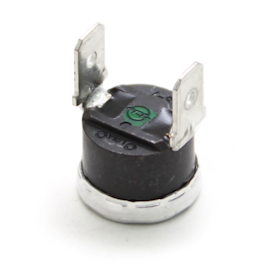
How to replace a dishwasher high-limit thermostat
Follow these steps to replace the high-limit thermostat in your dishwasher if prevents the heating element from heating.…
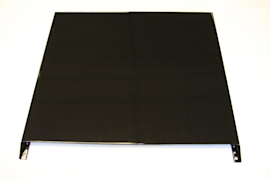
How to replace a dishwasher door outer panel
If your dishwasher door is dented or you want it to match your cabinets or other appliances, this guide shows how to rep…
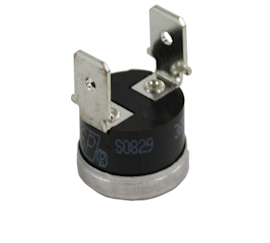
How to replace a dishwasher thermal fuse
A completely dead control panel often indicates that the thermal fuse on the electronic control board is blown; follow t…
Effective articles & videos to help repair your dishwashers
Use the advice and tips in these articles and videos to get the most out of your dishwasher.

Get tips on completing essential holiday cleaning tasks to brighten your home.…

Learn about all the convenient features on our Sears PartsDirect website that make your parts purchases easier.…
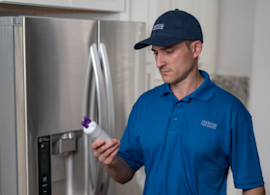
Get answers to frequently asked questions about Sears and Sears PartsDirect.…